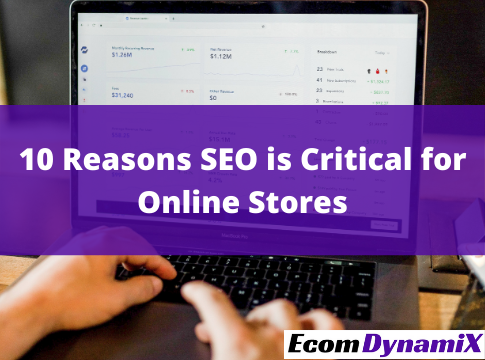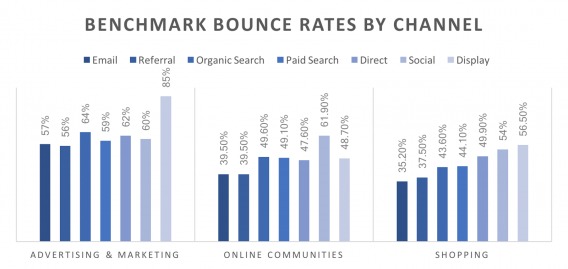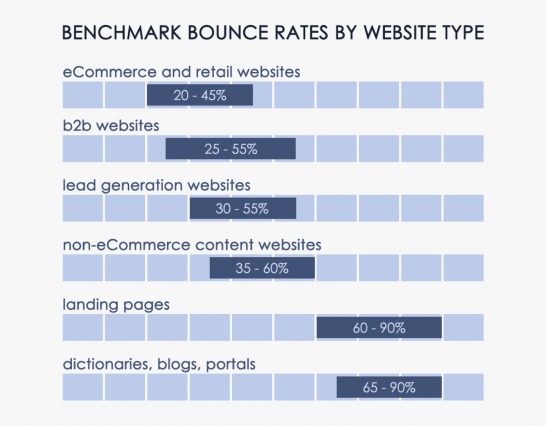Last Updated on April 12, 2024 by Weldon
Are you curious about how SEO can bring free traffic to your online store? In my opinion, SEO is the most underrated form of digital marketing. This is because many influencers in the ecommerce space focus exclusively on paid ads.
Also, few people are willing to give SEO a shot because it takes a long time to get a significant number of traffic to an online store depending on the niche.
Here is a list of reasons why SEO is critical for online stores:
- SEO Helps Potential Customers Find Your Online Store
- Ecommerce SEO Provides Consistent Traffic
- Bounce Rates Are Low For Organic Traffic
- Organic Traffic From Google Lowers Cost Per Conversion For Online Stores
- SEO Campaigns Involve Boosting User Experience Which Improves Ecommerce Conversion Rates
- SEO Can Boost Customer Retention For Online Stores
- SEO for Online Stores Improves a Brand’s Reputation
- SEO for Online Stores Assists Users in Displaying Their Products Effectively on the Organic Search Engine Results Page
- May People Will Ignore Ads For Products
- Results from Ecommerce SEO are Easy to Measure
In this post, I will go in depth on the reasons why ecommerce SEO is critical for long-term success in the ecommerce space.
Ecommerce SEO Provides Consistent Traffic
Search engine optimization provides a stream of customers that will grow consistently as long as SEO is continually invested in. As long as Google does not de-index your website or penalize you, then your stream of customers from SEO strategies should not go away.
With Google PPC ads and other forms of paid advertising, when you stop paying, the traffic drops and customers stop going to your online store. Organic traffic from Google just keeps flowing in.
The stream of traffic that comes from a decent ecommerce SEO campaign can be viewed as a safety net. If all advertising campaigns fail, then you can still get leads coming in thanks to ecommerce SEO professionals.
Unlike the majority of digital marketing forms, SEO allows people to elevate their total traffic consistently in a cost-effective manner. This is one of the many reasons affiliate marketers choose to focus on SEO more than paid ad campaigns.
I’m confident that, in the majority of cases, organic marketing can become one of your top sources of revenue in the long-term.
SEO Helps Potential Customers Find Your Online Store
Ideally, someone who is unfamiliar with your brand but needs your product will do a simple Google search and will see your website ranked at the top of the organic search results. They will then click through to your website and buy your product.
That process is so much better than the typical Facebook ads process where they have to see your ad seven times on average before purchasing your product. If you have an e-commerce website without a proper SEO foundation, then you are likely missing out on selling to an audience that desperately needs your products.
Please do not simply take my word for it. Go ahead and log on to your Google Analytics account. Take a glimpse at most of your traffic and pay attention to the channels. Then, look at the metrics for each channel.
Bounce Rates Are Low For Organic Traffic
For many online businesses, Google drives the majority of traffic to a website with the lowest bounce rate.
A bounce rate that is relatively low indicates that a website is giving the people that go to the website the type of information that they desired. Google’s definition of a ‘bounce’ is a single-page session that begins and ends on the same page of a site without triggering another request to the GA server.
Google rewards websites that have relatively low bounce rates. See the infographics below to see average bounce rates per channel as well as average bounce rate per website type. We give credit to Customedialabs for creating the infographics.
The way technology has changed over the years has changed the way consumers purchase products on online stores. Search is now a critical part of a consumers purchase decisions. This study shows that when it comes time to make a decision to buy or not, 89 percent of consumers will use search engines.
Organic Traffic From Google Lowers Cost Per Conversion For Online Stores
Smart marketers allocate most of their time and budget to activities that are critical to meeting their revenue or traffic-based goals. Trimming down on strategies that are not leading to results is very important.
The creation of an ecommerce SEO strategy that involves an in-depth analysis of an online store will lead to an ecommerce SEO campaign that is very cost-effective for many different reasons. Content marketing is just one part of an SEO campaign and it can bring in free traffic as well as your ideal customers, for example.
In highly competitive ecommerce niches, spending a lot of money for website traffic can make or break an online business. An ecommerce SEO that is managed properly makes online store owners less dependent on paid traffic. If finances are tight, ecommerce SEO can help you keep sales flowing.
With ecommerce SEO, it is possible to attract quality traffic in very large volumes without paying for it directly. There are many costs associated with an SEO campaign. Money is budgeted for backlinking, content creation, and more.
In the past, it was possible to get high quality guest post opportunities for a website. Now, it is almost always pay to play for guest posting and the cost per guest post keeps rising.
Successful online business owners have commonly chose to prioritize SEO efforts in the beginner stages of their company. They know it will take a long time for the SEO campaign to pay off, but they also know that the ROI will be high and the content thatr is created will help their branding efforts.
I’ve seen Gizmoplans.com dominate their niches with stiff competition from leading other brands because they took our advice. Our ecommerce SEO case study shows exactly what we did to help them.
Remarkably, we were able to do this even with a relatively small budget and limited resources. We followed simple SEO best practices and focused on high-quality content creation.
Successful companies have a very unique mindset. They approach, prepare and plan differently than others. They combine SEO with an overall marketing strategy in an attempt to boost their bottom-line.
Organic traffic can expose a Facebook pixel to a wide variety of traffic that can be retargeted on Facebook, for example. This is also true with YouTube ads to an extent.
SEO Campaigns Involve Boosting User Experience Which Improves Ecommerce Conversion Rates
Searchers know what they are looking for usually, and Google exists to help them achieve their goal. If a website provides a bad user experience, then Google will not reward them with significant amounts of traffic. UX and SEO both involve fulfilling the user’s intention as fast as possible.
Google’s algorithm has attained an amazing level of complexity and sophistication. It can interpret what is or is not a decent user experience based on many different factors. While most online businesses desire better organic rankings in the search engine results page, few people realize that making an optimal user experience is a major consideration for attaining that goal.
Google offers information that is sought-after directly through the search engine results page through their People Also Ask box.

The box provides users with the information that they usually want and is convenient. Top-notch SEO campaigns include a plan to improve user experience which can boost conversion rate too. For example, page speed optimization boosts user experience and improves conversion rates. The same is true for mobile optimization.
SEO Can Boost Customer Retention For Online Stores
There is another benefit of SEO that is not apparent to most and is rarely talked about. customer loyalty and retention. Online store visitors who find pages free of clutter, easy to navigate, secure, and fast are more likely to return to the website.
According to Google, 61% of users won’t go back to a mobile site that they had issues with. Plus, 40% would then go to a competitor’s site if the previous website was not satisfactory. All searchers do competitive research when looking for a product.
Content is a huge part of an SEO campaign and the better the content is, the more likely customers will stick with a brand. It is possible to improve a brand’s reputation by building trust through content marketing. It is critical for ecommerce stores to build trust with their customers in order to compete with Amazon, for example.
SEO for Online Stores Improves a Brand’s Reputation
Most believe that making sure that they get a lot of five star reviews from happy customers will create trust and improve reputation. This is true as is creating decent social media profiles.
However, those two things only help when your ideal customers already knows you. SEO allows your store to get noticed by people that are searching for solutions or answers.
They want to research a product before before making a purchase. They might be ready to make a purchase, but they do not know that your online business or e-commerce website exists.
So, how does one improve a website reputation with SEO for online stores? Here is the answer: create useful, relevant, or informative content.
Doing that will lead to the sharing of your content throughout the web which improves a brand. Content creation is the most important part of an ecommerce SEO campaign in my opinion. After all, most people in the SEO agree that content is KING.
Your target audience uses keywords for your products online so you cancrate content around those keywords. Once we figure out what your target keywords are, we list them in SEMrush’s position tracker and create a decent content marketing strategy around them.
As you create helpful content, your target audience as well people that are outside of your target audience will share the content on social media. I’m sure you have seen a viral blog post or YouTube video at some point.
Your website and brand will then be known to as a decent source of helpful and reliable content. You’ll surely create an awesome website reputation as you go on to make more sharable blog posts, for example.
In addition to that, relevant websites in your niche might to link to your website as a trusted source of content which leads your website acquiring a significant number of backlinks. That will tell Google that your website should get a boost in rankings because it is an authority in your niche or industry
So, start posting relevant blog posts and YouTube videos. Create reliable and helpful content that is designed to rank well in Google.
SEO for Online Stores Assists Users in Displaying Their Products Effectively on the Organic Search Engine Results Page
For the majority of the time, your most sought-after customers choose to click on a search result that shows them an image of a product, a product’s brand name, a product’s rating, how many reviews the product has, and the product’s price.
See the image below as an example of organically ranked products. That feature is currently in it’s beta phase. There are many different types of similar features.

Organic product listings like these can be generated if you add schema markup and structured data to your product pages. Structured data and schema markup involve adding JSON code or microdata to the HTML code of your product pages so that Google can better understand the product pages and rank them accordingly.
This will lead to your products being displayed more attractively in the organic search results as well as the organic section of Google shopping results.
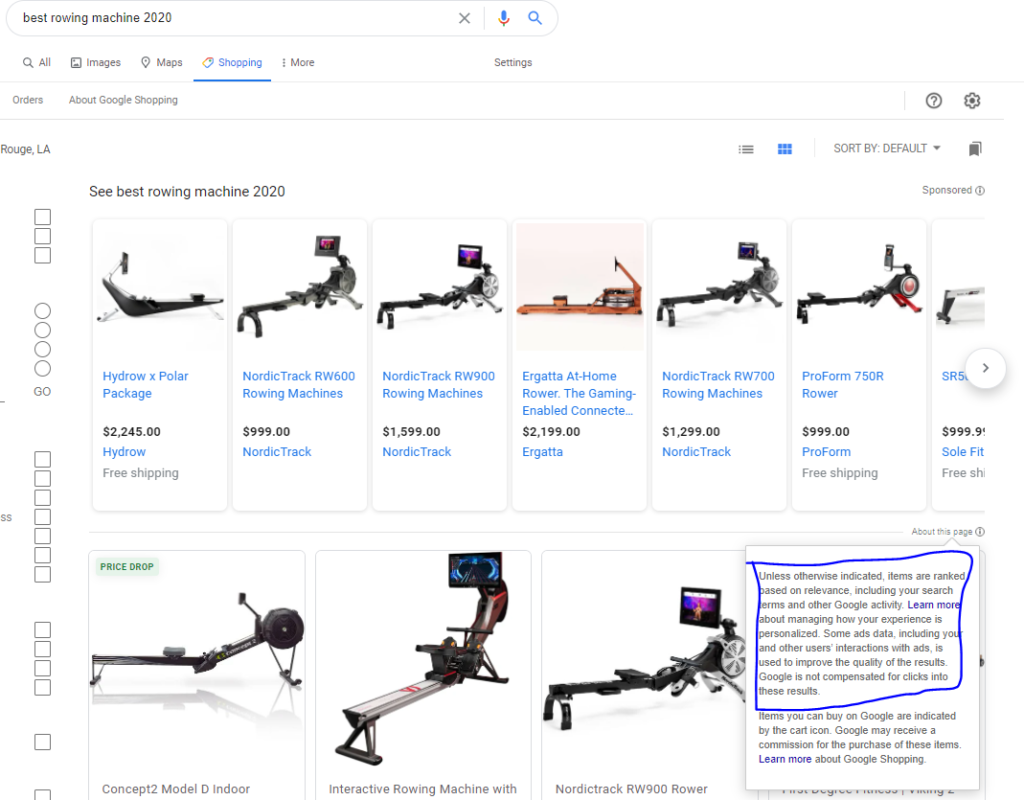
“Unless otherwise indicated, offers on Google Shopping are ranked based on relevance, including your search terms and other Google activity. Some ads data is used to improve the quality of results. Offers that have the ‘Sponsored’ label means that advertiser payment to Google may also influence how items are ranked and grouped. Google is compensated for clicks on these ads.”
The move to allow more organic product listings was brought about during the coronavirus crisis because many brick and mortar retailers had to close their doors.
An e-commerce SEO strategy suddenly became very important to many merchants who were unaware of the power of SEO. The health crisis was a primary motivating factor for
“advancing our plans to make [Google Shopping] free for merchants,”
according to Google’s President of Commerce Bill Ready. It is important to understand that the change will be permanent and is a part of a long-term vision for the typical organic search results as well as Google Shopping.
“For retailers, this change means free exposure to millions of people who come to Google every day for their shopping needs,” said Ready. “For shoppers, it means more products from more stores, discoverable through the Google Shopping tab. For advertisers, this means paid campaigns can now be augmented with free listings.”
Check out our post on Free vs. Paid Google Shopping Product Listings.
This is a big change that we have been closely watching. Before being entirely paid, Google’s product search had a huge quality problem since many product listings included out of stock or completely different products.
Google made sure that the information in their product feed closely matched the data on an online store. Google has advanced significantly since then and shows a wider variety of information.
Google has kept a close eye on the e-commerce giant known as Amazon as they continue to gain a significant amount of organic rankings and spend a lot of money on Google ads. Limiting the number of products that are available in Google’s paid shopping puts those who focus on organic product rankings at a disadvantage.
These changes will improve Google’s appeal to consumers too. On Amazon, sellers that want to make sure that they maintain prominent visibility in the search results are willing to engage in Amazon SEO campaigns and pay for ads.
For e-commerce SEO professionals, the changes add a new opportunity for their organic product ranking efforts. Sellers using PayPal will be able to link their accounts to Google Merchant Center.
This which will allow Google to acquire a seller’s details faster and verify trusted sellers. Google also partners with major e-commerce platforms such as WooCommerce, Shopify, and BigCommerce.
The partnerships will simplify the process for sellers that want to manage their inventory and products listings efficiently and effectively. Google announced that the changes will eventually expand globally.
Currently in 2021, we are starting where Google ended in 2012. Google Base has been exchanged with Google Merchant Center which allows sellers to connect a product data feed directly to Google that updates in real-time.
The Merchant Center feed does not need to copy data from the website necessarily which is very helpful. A client of ours uses an obscure CMS platform that does not easily change meta titles (title tags), for example. We created an optimized product feed that increased rankings in Google Shopping which drove traffic and sales.
It’s no secret that product feeds are critical for success with Google Shopping. It is likely that your CMS platform has a default feed generator. Shopify has one and Woocommerce has a plug-in for product feeds like the one below.
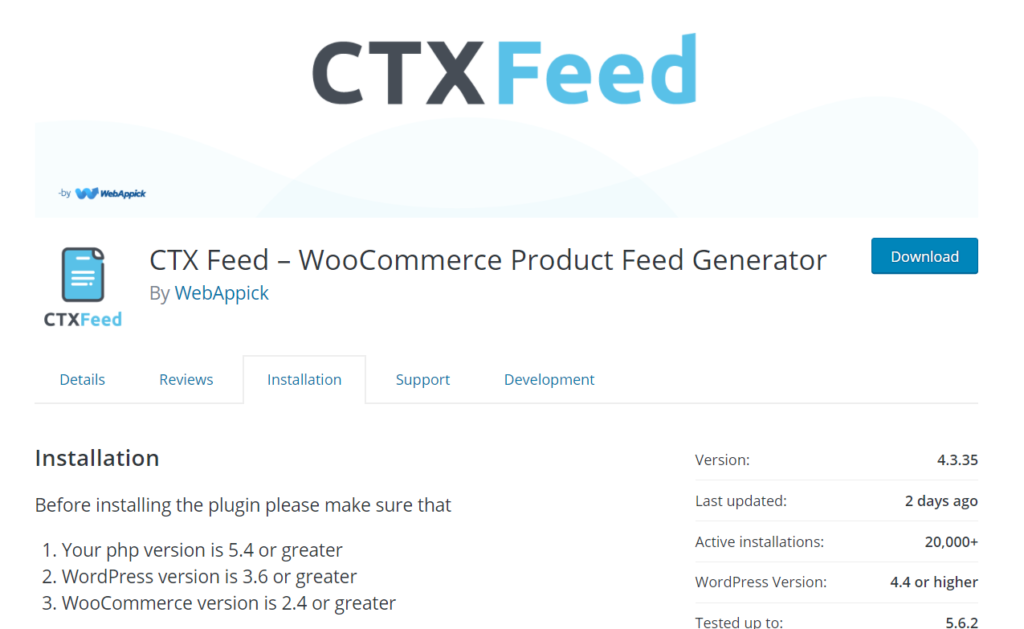
You can always create your own feed with Google Sheets since it works natively with Google Merchant Center. Shopping feeds can have relevant keywords in titles as well as product descriptions.
May People Will Ignore Ads For Products
It has been proven that those expensive PPC ads that you have spent a lot money on in attempt to make a quick return will be ignored even if they are at the top of the search engine result page. Researchers have used heat-mapping technology to create a visual that shows where a Googler’s eyes move on the search engine results page.
Unsurprisingly, the areas where PPC ads are tend be ignored. Googler’s ignore them because they respect organic search results more than Google PPC ads.
People feel interrupted, overwhelmed, and stalked by bad PPC ads as well as Facebook ads. However, they do not really mind the ads that entertain them, for example.
Results from Ecommerce SEO are Easy to Measure
One of the biggest advantages of SEO for online stores is that you can measure every part of your results from an SEO campaign.
Unlike conservative digital marketing methods, which often are heavily reliant on searching for correlations between sales and ad campaigns, it is fairly easy to calculate the ROI that you are getting from an ecommerce SEO investment.
Using Google Analytics, you can quickly see the number of organic users that go to your online store. You can also monitor your organic traffic, track conversions, view referral sources, and see any other important metric that matters to you and your online business.
This way, you can be sure that you’re spending your marketing budget on the strategies that have the biggest positive impact on your goals.
Final Words on Why SEO is Critical for Online Stores
Not utilizing ecommerce SEO means you are potentially missing out on customers and sales. Visibility during your customers’ buying journey is essential. For every minute that your online store is not visible for your target keywords, the competitors in your niche will increase profits and sales.
More often than not, I find clients that are more than satisfied with average rankings on Google’s search engine results pages. They do not understand that they could potentially expand revenue and sales significantly by improving their content strategy, backlink strategy, and overall SEO strategy.
Contact us today and we will schedule a call where we can answer any of your ecommerce SEO-related questions.

